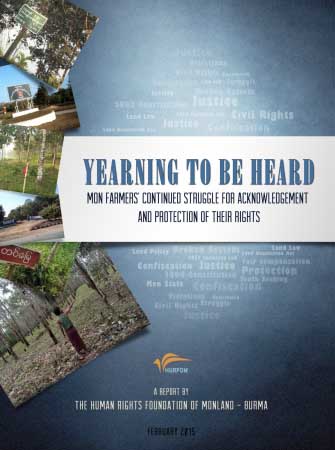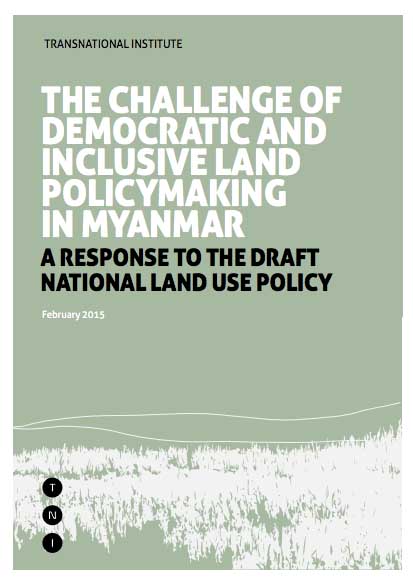Displacement (184 found)
Former ASEAN Leaders Issue Letter on Myanmar Intolerance
Kuala Lumpur, Wednesday: Former ASEAN leaders have sent a joint letter to their current ASEAN colleagues, calling for stepped up engagement to address rising intolerance in Myanmar, including proposed discriminatory legislation […]
• • •Open Letter to ASEAN Heads of State
We write as Members of Parliament representing several ASEAN nations to express our grave concern about the plight of Rohingya Muslims, the high risk of atrocities in Myanmar, and the dangers these crises represent, not only for Myanmar, but for the entire ASEAN region […]
• • •The Rohingya Crisis and the Risk of Atrocities in Myanmar: An ASEAN Challenge and Call to Action
 Executive Summary
Executive Summary
The longstanding persecution of the Rohingya Muslim minority in Myanmar has led to the highest outflow of asylum seekers by sea since the U.S. war in Vietnam. Human rights violations against Rohingya have resulted in a regional human trafficking epidemic, and there have been further abuses against Rohingya upon their arrival in other Southeast Asian countries […]
• • •The Rohingya, the Citizenship Law, Temporary Registration, and Implementation of the Rakhine State Action Plan
In February 2015 around a million people, ethnic Rohingya lost their right to vote in Burma’s upcoming election. The British government said nothing about the massive blow both to the rights of the Rohingya and the credibility of the election. The British government is still talking about the election as a critical moment in Burma’s transition to democracy […]
• • •Karen Rivers Watch Statement on International Day of Rivers and Against Dam
On the International Day of Action for Rivers and Against Dams, Karen Rivers Watch renews its call for the suspension of all dam projects in Karen State and other ethnic states […]
• • •Advance Unedited Version: Report of the Special Rapporteur on the situation of human rights in Myanmar, Yanghee LEE
Since 2011, Myanmar has undergone far-reaching changes that have affected many aspects of life in the country. However, there continue to be signs of backtracking by the Government and increasing concerns over discrimination and ethnic conflict […]
• • •Open Letter to Special Rapporteur from Korean Transnational Corporations Watch
Korean Transnational Corporations Watch (hereafter KTNC Watch) is a network of human rights/labor/environment/public law organizations in Korea which has long been active in responding human rights issues of Korean-owned or -invested companies overseas […]
• • •Amnesty International Annual Report – Myanmar Chapter
Despite ongoing political, legal and economic reforms, progress on human rights stalled, with some backward steps in key areas. The situation of the Rohingya deteriorated, with ongoing discrimination in law and practice exacerbated by a dire humanitarian situation. Anti-Muslim violence persisted, with the authorities failing to hold suspected perpetrators to account. Reports of abuses of international human rights and humanitarian law in areas of armed conflict persisted. Freedoms of expression and peaceful assembly remained severely restricted, with scores of human rights defenders, journalists and political activists arrested and imprisoned. Impunity persisted for past crimes […]
• • •Yearning to be Heard: Mon Farmers’ Continued Struggle for Acknowledgement and Protection of their Rights
 Land conflict is the most pressing issue facing Burma today, second only to armed conflict. Though Burma’s emerging democratic government has introduced land policy reform and has established land investigation commissions aimed to resolve land conflicts, civilian land acquisition by the Burmese military continues to take place, particularly in Burma’ minority ethnic areas.
Land conflict is the most pressing issue facing Burma today, second only to armed conflict. Though Burma’s emerging democratic government has introduced land policy reform and has established land investigation commissions aimed to resolve land conflicts, civilian land acquisition by the Burmese military continues to take place, particularly in Burma’ minority ethnic areas.
The Challenge of Democratic and Inclusive Land Policymaking in Myanmar: A Response to the Draft National Land Use Policy
 In October 2014 the Myanmar government unveiled a draft National Land Use Policy (NLUP) and announced it would take public comments for a limited time before finalizing the document. Once it is finalized, the new policy will determine the distribution, use and management of the country’s land and related natural resources like forests and rivers, for years to come […]
In October 2014 the Myanmar government unveiled a draft National Land Use Policy (NLUP) and announced it would take public comments for a limited time before finalizing the document. Once it is finalized, the new policy will determine the distribution, use and management of the country’s land and related natural resources like forests and rivers, for years to come […]

 All posts
All posts